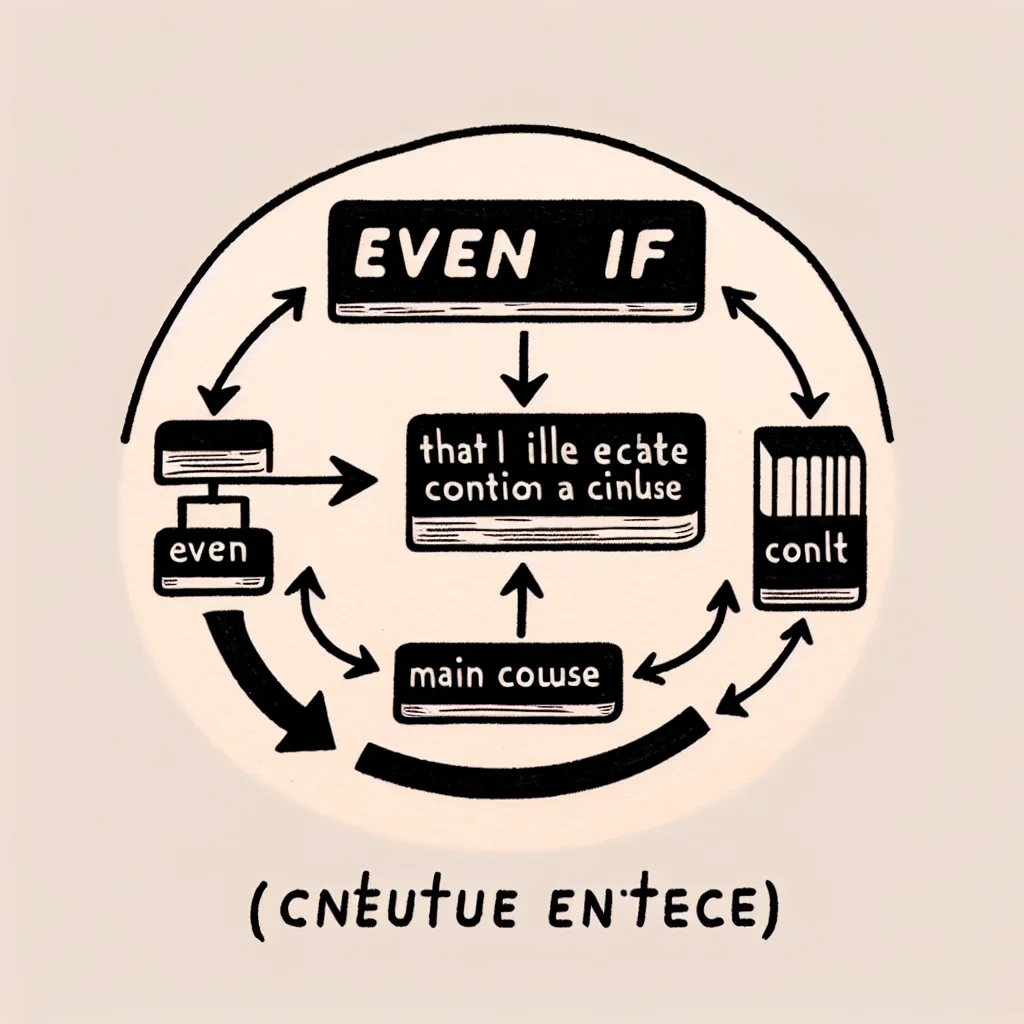Understanding and using “even if” sentences in conditionals is crucial for IELTS success. These structures appear frequently in both the reading and writing sections, testing a candidate’s ability to express complex ideas and hypothetical situations. Let’s dive into the nuances of “even if” conditionals and explore how to use them effectively in your IELTS preparation.
The Meaning and Importance of “Even If” in IELTS
“Even if” is used to introduce a condition that will not change the result of the main clause. It’s a powerful tool for expressing unlikely or extreme conditions, which is particularly useful in IELTS Task 2 essays and Speaking Part 3 discussions where complex ideas need to be conveyed.
Consider these examples:
- Even if it rains tomorrow, I will go for a run.
- The project will proceed even if we don’t secure additional funding.
- Even if you study all night, you won’t memorize the entire textbook.
In each case, “even if” introduces a condition that doesn’t affect the outcome stated in the main clause.

Grammar Rules and Usage in IELTS
The grammar rules for “even if” conditionals are similar to other conditional structures:
Formula: Even if + [condition], [result]
OR
[Result] even if + [condition]
It’s important to note that “even if” can be used with various tenses, depending on the situation:
- Present tense: “Even if it rains, I’ll go to the park.”
- Past tense: “Even if it had rained, I would have gone to the park.”
- Future tense: “Even if it will rain tomorrow, I’ll still organize the outdoor event.”
Application in IELTS Writing
In IELTS Writing Task 2, using “even if” can demonstrate your ability to consider multiple perspectives:
“Even if governments invest heavily in public transportation, many people will still prefer to use their private vehicles due to convenience and flexibility.”
This sentence shows a sophisticated understanding of the topic, considering potential counterarguments.
Usage in IELTS Speaking
For the Speaking test, “even if” can help you express determination or hypothetical situations:
“Even if I face many challenges in my career, I will never give up on my dream of becoming a successful entrepreneur.”
Elevating Your IELTS Score with “Even If”
To achieve a higher band score, it’s crucial to use “even if” accurately and in context. Compare these examples:
Band 6: “Even if the weather is bad, I will go out.”
Band 7: “Even if the weather turns unexpectedly stormy, I’m determined to complete my training run.”
Band 8: “Even if unprecedented weather conditions arise, causing widespread disruption, I remain committed to fulfilling my training regimen, albeit with necessary safety precautions.”
The higher band examples demonstrate more complex vocabulary, precise grammar, and nuanced expression of ideas.
Common Mistakes and How to Avoid Them
-
Confusing “even if” with “if”:
Incorrect: “If even it rains, I will go.”
Correct: “Even if it rains, I will go.” -
Using the wrong tense:
Incorrect: “Even if it will rain tomorrow, I go to the beach.”
Correct: “Even if it rains tomorrow, I will go to the beach.” -
Misplacing “even”:
Incorrect: “If even the train is late, I’ll make it to the meeting.”
Correct: “Even if the train is late, I’ll make it to the meeting.”
Practice Examples for IELTS Preparation
-
Writing Task 2: “Even if renewable energy sources become more efficient, fossil fuels will likely remain a significant part of the global energy mix for decades to come.”
-
Speaking Part 3: “Even if artificial intelligence continues to advance rapidly, I believe human creativity will always be irreplaceable in certain fields.”
-
Reading comprehension: “The researchers concluded that, even if global temperatures rise by only 1.5°C, significant changes in weather patterns are inevitable.”
-
Listening practice: “The speaker mentioned that even if the company faces financial difficulties, they will not compromise on product quality.”
-
Grammar exercise: Complete the sentence: “Even if I had known about the traffic jam, I ___ (still/be) late for the meeting.” (Answer: would still have been)
Conclusion
Mastering the use of “even if” in conditionals can significantly enhance your IELTS performance. It allows you to express complex ideas, hypothetical situations, and demonstrate a high level of English proficiency. Practice incorporating these structures into your writing and speaking to boost your confidence and achieve a higher band score.
Remember to use “even if” when you want to emphasize that a condition will not change the outcome of a situation. This nuanced approach to language will set you apart in the IELTS exam and beyond.